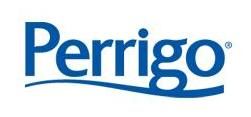Gateways to Clinical Trials is a guide to the most recent clinical trials in current literature and congresses. The data in the following tables has been retrieved from the Clinical Studies knowledge area of Prous Science Integrity(R), the drug discovery and development portal, http://integrity.prous.com. This issue focuses on the following selection of drugs: AdGVVEGF121.10, anakinra, andolast, anidulafungin, APC-2059, l-arginine hydrochloride, aripiprazole, arzoxifene hydrochloride, asimadoline; Bexarotene, bimatoprost, bimosiamose, bizelesin, BMS-188667, botulinum toxin type B, bromfenac sodium, bryostatin 1; Cannabidiol, cariporide mesilate, CCI-1004, CDP-571, cerivastatin sodium, clevudine; Dalbavancin, darbepoetin alfa, decitabine, deligoparin sodium, diethylnorspermine, drotrecogin alfa (activated), DTaP-HBV-IPV/Hib-vaccine; E-5564, eculizumab, edodekin alfa, emtricitabine, enfuvirtide, (-)-epigallocatechin gallate, eplerenone, esomeprazole magnesium, etaquine, etoricoxib, ezetimibe; Fesoterodine, fipamezole hydrochloride, fondaparinux sodium, fosamprenavir calcium, frovatriptan, fulvestrant; Gadofosveset sodium, galiximab, ghrelin (human), glufosfamide; Homoharringtonine; Idraparinux sodium, imatinib mesylate, INS-37217; KRN-7000; L-651582, lafutidine, lanthanum carbonate, lenercept, levetiracetam, lusupultide; Magnesium sulfate, melatonin, mepolizumab, midostaurin, morphine hydrochloride, mozavaptan; Natalizumab, nesiritide; OPC-51803, oregovomab, oritavancin; Peginterferon alfa-2(a), pleconaril, plevitrexed, prasterone, pregabalin; Ranibizumab, Ro-31-7453, roxifiban acetate, rubitecan; SCV-07, SHL-749, sho-saiko-to, soblidotin, solifenacin succinate; Tegaserod maleate, telithromycin, tenecteplase, theraCIM, tipifarnib, travoprost; Valdecoxib, vardenafil hydrochloride hydrate, voriconazole; Ximelagatran; Ziprasidone hydrochloride, ZYC-00101.








